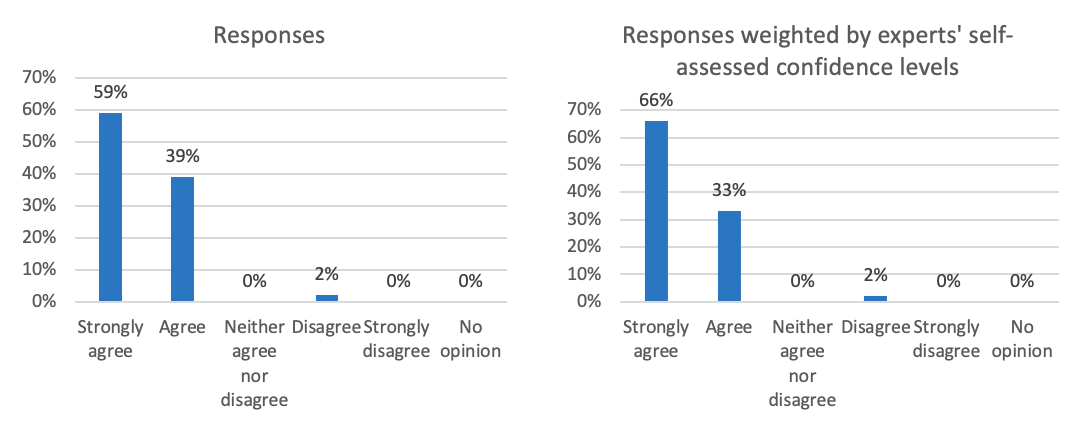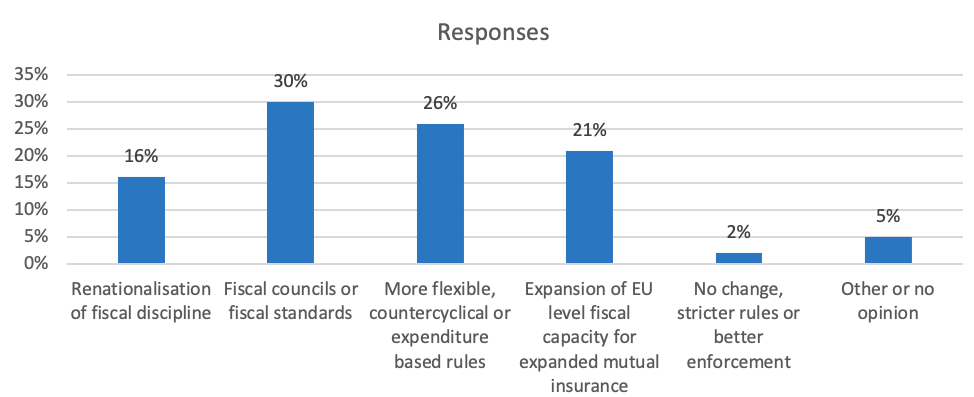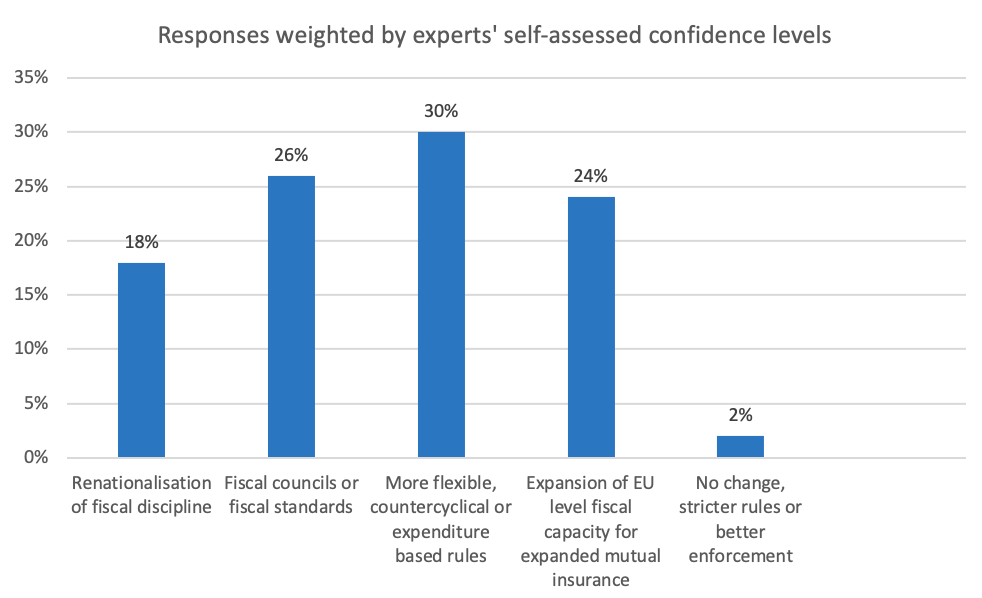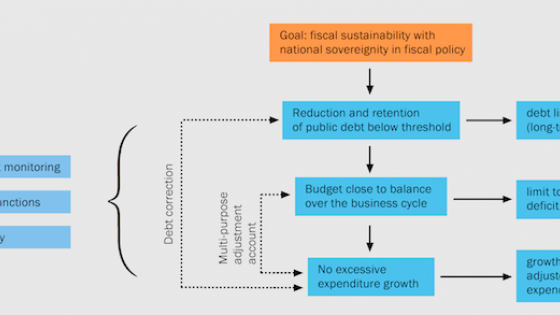Fiscal rules were enshrined in the founding documents of the European Monetary Union. The Maastricht Treaty of 1992 required that members, existing and prospective, keep public debt below 60% and public deficits below 3% of GDP. The Stability and Growth Pact (SGP), enacted in 1997, further elaborated these rules and their enforcement mechanisms. These were considered essential to avoid mutualisation of sovereign liabilities, the potential spillovers from a sovereign debt crisis to the banking system. The ECB’s independence could also be at risk absent limits on the fiscal liabilities of member states (Eichengreen and Wyplosz 1998). While the SGP allowed for an escape clause for large recessions, the criteria came under immediate criticism1 for imposing procyclical policies on member states, forcing them to cut deficits during recessions.
Debates heightened during the global financial and euro area crises, where member states’ fiscal policies were constrained by conditionality under European and IMF lending programmes (e.g. Greece), the SGP (e.g. France and Italy), and national fiscal rules (e.g. Germany). Some blamed the SGP for imposing austerity policies on member states already experiencing a dire downturn. Others viewed the SGP – or some form of fiscal rule – as a safeguard against moral hazard, critical to avoiding bailouts, and a prerequisite for a monetary union. Wolfgang Schäuble has been a vociferous proponent of this view (Schäuble 2021). Brunnermeier et al. (2016) review the two sides of the debate and its historical origins.
The years following the crisis led to some rethinking of fiscal rules. The most recent formal change was a European parliament communication in 20152 that allowed escape clauses conditional on the magnitude of recession a country faced, but clarifies that it only elaborates on the escape clause already set out in the SGP rather than a change in the fiscal rules. An earlier reform of the SGP in the mid-2000s, following infringements by Germany and France, made the rules more countercyclical but was deemed unenforceable because it set targets for the (unobserved) structural fiscal balance. There is a heated debate on reforming the EU’s fiscal framework – see for example the discussion in the European Fiscal Board’s August 2019 report (EFB 2019) and the Economic Governance Review of the DG-ECFIN in February 2020.3
Beetsma et al. (2018) argue that the patchwork of rules and exceptions, resulting from the political compromises of the past two decades, have made the fiscal framework confusing, subjective, and arbitrary in its enforcement. The complexity of the fiscal rule is perhaps best illustrated through the European Commission’s Vade Mecum (Handbook) on the SGP, meant to “enhanc[e] the clarity of the strengthened fiscal (and economic) governance toolbox,” but running to over 100 pages (European Commission 2019). Bilbiie et al. (2021) give an excellent overview of the myriad debates regarding fiscal policy in the EU. Baldwin and Giavazzi (2016) collect a broad range of proposals to improve the current institutional arrangements governing the euro area.
The crisis also led to new institutional arrangements, including the European Stability Mechanism, which is authorised to lend to euro area countries facing funding difficulties. It also led to enhanced surveillance under the six-pack and two-pack EU legislative packages of 2011, which introduced independent national fiscal councils. The Covid-19 crisis triggered the SGP’s escape clause and led to further innovations.4 These include €672.5 billion in assistance through the NextGenerationEU Recovery and Resilience Facility,5 including loan and grant assistance, financed in part by borrowing at the EU level.
There have been many suggestions to reform European fiscal rules. At one end of the spectrum are calls to scrap fiscal rules and replace them with norms, enforced by fiscal institutions. Some non-euro area countries, including the UK and Sweden, have soft fiscal rules, complemented with councils that provide objective analysis on how well the government is meeting its targets. Blanchard et al.’s (2021) proposal can perhaps be viewed in this light. They suggest replacing fiscal rules with looser “fiscal standards” that would be enforced by an apolitical body. In the authors’ view, fiscal rules are insufficiently supple for national fiscal policies to respond to frequent unforeseen circumstances. Chadha et al. (2021) also argue for fiscal norms enforced by a beefed-up fiscal council for the UK.
Some commentators have called for the fiscal rules to be revised and loosened. Beestma et al. (2018) suggest that member countries provide a 15-year plan to meet the 60% debt-to-GDP ratio and effectively making the deficit target secondary (a European Parliament paper makes a similar proposal; Kopits 2018). The policy paper by Bénassy-Quéré et al. (2018) was written by fourteen (seven French and seven German) prominent economists, the so called 7+7, who reflect a variety of views.6 They put forward several potential changes, including allowing for debt restructuring, expanding fiscal capacity at the federal level, and reforming fiscal rules. According to their proposal, existing rules should be replaced with a ceiling on spending growth in line with potential output growth, with a correction factor to reduce the debt if it is too high. Likewise, Coricelli (2004) and Darvas et al. (2018) have proposed similar expenditure rules. In contrast, Feld et al. (2018) suggest scrapping escape clauses, sticking to the current fiscal targets, and augmenting them with a limit on nominal expenditure growth. Boffinger (2020), meanwhile, calls for a ‘golden rule’ that would exempt public investments from deficit targets.7
Others suggest that forms of mutual insurance could aid countries in meeting their SGP fiscal targets. Put differently, some of the temporary measures adopted in response to Covid-19 could be made permanent. Panel member Maria Demertzis writes in the FT that “the EU’s no bailout clause — which stipulates that no ember state is liable for the financial commitments of another — has been in effect replaced by the European Stability Mechanism as the lender of last resort for countries that are cut out of markets… Although intended as a one-off tool, this pooling of risks to issue common debt might have to be used again in the future to protect the single currency. More explicit co-ordination of policy along these lines is something EU member states will have to discuss.”8 Assistance at the EU level might include EU-level unemployment (re-)insurance, for example following the model of the SURE instrument9 adopted during Covid-19. Tools at the federal level will likely require a permanent expansion of fiscal capacity. Recent proposals to issue Coronabonds10 or ESBies (Brunermeier et al. 2012, 2016) differ in their details, but all involve borrowing at the EU level to partially collectivize EU fiscal capacity. A previous CfM-CEPR survey11 found support for proposals of this sort among panel members. Panelists also discussed the lack of clarity on whether borrowing at the EU level is joint or several.
This month’s CfM-CEPR survey asks whether and how EU fiscal rules should be changed. While the fiscal rules also apply to non-euro area members, the focus of the question is on EMU members. In this regard, panel members were asked to opine on the following proposition:
Proposition 1: The existing fiscal rules for European Monetary Union members require revision.
Forty-one panel members responded to this question. Ninety-eight percent of the panel agreed that rules should be revised. This is the largest majority ever seen for any CfM-CEPR survey question to date. A single member rejected the proposition that the rules require revision.
Panel members gave their alternatives to the existing framework in their response to the second question but voiced their opposition to the status quo in several ways. Some members believe that fiscal rules should never have been imposed. Jordi Galí (CREI, Universitat Pompeu Fabra and Barcelona GSE) writes, “I don't think there was any justification for having the rules to begin with if no bailout rule is enforced.” David Miles (Imperial College) agrees that it is “better to remove perceptions that there is a Euro backstop protecting euro denominated government bonds than create a set of fiscal rules that are not effective.” Similarly, Simon Wren Lewis (University of Oxford) claims that “[f]iscal rules that focus on national government debt have caused the Eurozone great harm. It is time to rethink the whole basis of those rules, so they allow aggregate fiscal stimulus when interest rates hit their lower bound.” Jagjit Chadha (National Institute of Economic and Social Research) further disputes whether the euro area was ever an optimal currency union and thus always required greater flexibility. He writes that fiscal rules “have been more honoured in the breach the observance. And have led to sub-optimal fiscal responses to the consequences of a monetary union that is itself not an optimal currency area.”
Others suggest that whatever their original merits, “lots of water have passed under the bridge since the fiscal rules were formulated”, in the words of Morten Ravn (University College London). He adds that “it's time go back and do some serious work on this. Good fiscal rules are helpful in anchoring expectations, bad fiscal rules can hinder stabilization.” Following the euro area crisis and the Covid-19 pandemic, Pietro Reichlin (Università LUISS G. Carli) similarly claims that “the 60% target for the debt-GDP ratio is totally out of reach for the foreseeable future.”
Evi Pappa (Universidad Carlos III de Madrid) refers to her paper given at the ECB Forum on Central Banking in Sintra in 2020 (Papa 2020), in which she shows that fiscal rules have become increasingly complex and added to political uncertainty. She writes that “fiscal rules are complex and ever evolving in the European Monetary Union. Their strictness and occasional violations have increased political uncertainty in Europe. A revision is needed!” Ramon Marimon (European University institute and UPF-Barcelona GSE) elaborates on the complexity of rules that “as the European Commission has recognised, the ad-hoc 'flexibility' introduced since the euro crisis has made the SGP too complex to be an accountability rule, not only because it's more difficult to assess compliance, but also because makes the SGP even less credible.” He adds that “the attempt to enforce the SGP with sanctions has proved, as expected, futile. Yet, NGEU [Next Generation EU] has shown, once more, that EU carrots work, much more than non-credible sticks. When the Maastricht targets were introduced, there was a big carrot ahead for countries which didn't have the entrance in the incoming European Monetary Union guaranteed and most of them comply.”
In the second question panel members asked for alternatives to the existing fiscal rules.
Question 2: Which of the following is the one reform you would choose to improve fiscal rules?
Forty-three panelists responded to this question. Thirty percent of panel members support forming fiscal councils or replacing rules with norms; 26% support retaining but reforming fiscal rules to make them more flexible, countercyclical, or expenditure based. The vote-shares for these two options are reversed when weighing responses by experts self-assessed confidence levels. A further 21% (24% when weighed by confidence) would like to see an expansion of fiscal capacity at the EU level. Many panel members noted their support for a package including a combination of these three options; indeed, all three appear in the 7+7 reform proposal. A smaller share of 16% would scrap EU-level fiscal rules altogether and renationalize fiscal policy. Finally, a single member (representing 2%) opted for stricter enforcement of existing fiscal rules.
The primary argument for fiscal councils or norms was that fiscal rules have become increasingly complex and difficult to monitor. Councils would arbitrate whether countries either followed fiscal rules or more vaguely maintained good fiscal practices. Nicolas Oulton (London School of Economics) refers to this when writing that “the problem with rules is that they are impossible to draft in a way allowing for all contingencies.” The monitoring of fiscal policy therefore gets “bogged down in the bureaucratic silos which have plagued EU fiscal rules.” Jagjit Chadha adds that fiscal councils would instead give “a much fuller account of the fiscal paths for expenditure, revenue raising and debt issuance. A fiscal council can focus discussion on the normative aspects of policy as well as encourage counterfactual analysis of alternate policy choices.” Jorge Braga de Macedo (Nova School of Business and Economics, Lisbon) draws on his experience negotiating the Maastrict Treaty in saying that the existing institutional framework leads the policy discussion “getting bogged down in the bureaucratic silos which have plagued EU fiscal rules,” and that fiscal councils and norms would avoid this. However, Nicolas Oulton ends by asking “how to persuade countries like Germany to agree to flexible standards rather than rigid rules”.
Supporters of alternative fiscal rules had differing views on the type of reform to pursue. Fabrizio Coricelli (Paris School of Economics) supports the calls for “expenditure rules based on nominal expenditure targets related to expected GDP [that] would be automatically countercyclical and would ensure debt stability.” “The transparency of the rule would justify stricter and more rigid enforcement and penalties, such as losing access to EU funds,” he argues. Volker Wieland (Goethe University Frankfurt and IMFS), who calls for no change, stricter rules, or better enforcement, agrees that “it would be sensible to put the focus on an expenditure-based rule in order to obtain a more transparent and enforceable handling of the rules. This can be achieved without a treaty change. The existing rules have been implemented in a very flexible manner. So, lack of flexibility is not the problem.”
David Cobham (Heriot Watt University) calls for a package of fiscal councils, reformed rules, and EU-level fiscal capacity “to facilitate countercyclical policies, in the form of discretionary changes as well as automatic stabilisers, in conditions of sharp deviations (in either direction) from trend/potential output, but also (b) to require consolidationary changes to return debt ratios to broadly appropriate levels when conditions have stabilised.” Costas Milas (University of Liverpool) has a different proposal, in the form of a “dual mandate in which the budget deficit-to-GDP ratio is equal to 3% but, at the same time, can rise depending on whether a country records governance improvements.” Finally, Simon Wren-Lewis suggests establishing “national fiscal rules [that] focus on real exchange rate (price level) harmonisation among EZ countries using national fiscal stimulus or contraction. If this is achieved, then national debt will look after itself.”
In supporting expanded EU-level fiscal capacity, Evi Pappa states that “permanent central fiscal capacity [could be used to] address large shocks and possible finance of spending (like in infrastructure and education) that involves positive externalities that regional policymakers might fail to internalise are desirable features of a possible revision.” Francesca Monti (Kings College London) notes that this would have the added positive aide effect of “facilitating convergence and increase the effectiveness of euro-area-wide monetary policy.” Ramon Marimon points out that fiscal capacity has already expanded over the past decade and that expanded fiscal capacity in the longer run is therefore inevitable. He calls for “'permanent SURE, or state-contingent debt), even if to a large extent fiscal policy will remain in the hands of the MS. For them a revised/simplified SGP can be a complement to the new and more powerful EU/EA fiscal instruments that can act, again, as a carrot.” Thorsten Beck (Cass Business School) believes that expanded fiscal capacity would be complemented by a complete banking union.
Proponents of re-nationalising fiscal policies argue that there are “no obvious negative externalities from ‘excessive’ deficits under no bailout”, in the words of Jordi Galí. Instead, Galí contends that “markets [should] punish ‘irresponsible’ or ‘risky’ fiscal behavior.” Patrick Minford (Cardiff Business School) points to simulations conducted at his university based on DSGE models that indicate that national fiscal policies would improve macroeconomic stability.
Author’s note: The author acknowledges Lucile Crumpton for her able research and editorial assistance.
References and further reading
Baldwin, R and F Giavazzi (2016), How to fix Europe’s monetary union: Views of leading economists, CEPR Press.
Bénassy-Quéré, A, M Brunnermeier, H Enderlein, E Farhi, M Fratzscher, C Fuest, P-O Gourinchas, P Martin, J Pisani-Ferry, H Rey, I Schnabel, N Véron, B Weder di Mauro, and J Zettelmeyer (2018), “Reconciling risk sharing with market discipline: A constructive approach to euro area reform,” CEPR Policy Insight 91.
Bilbiie, F, T Monacelli, and R Perotti (2021), “Fiscal Policy in Europe: Controversies over Rules, Mutual Insurance, and Centralization,” Journal of Economic Perspectives 35(2).
Blanchard, O, A Leandro, and J Zettelmeyer (2021), “Redesigning EU fiscal rules: From rules to standards,” PIIE working Paper 21-1.
Beetsma, R, N Thygesen, A Cugnasca, E Orseau, P Eliofotou and S Santacroce (2018), “Reforming the EU fiscal framework: A proposal by the European Fiscal Board”, VoxEU.org, 26 October.
Beetsma, R and M Larch (2018), “Risk reduction and risk sharing in EU fiscal policymaking: The role of better fiscal rules”, VoxEU.org, 10 May.
Beetsma, R and H Uhlig (1999), “An Analysis of the Stability and Growth Pact”, Economic Journal 109(458): 546-571.
Bofinger, P (2020), “Easing the EU fiscal straitjacket”, Social Europe, 14 December
Brunnermeier, M, L Garicano, P R Lane, M Pagano, R Reis, T Santos, D Thesmar, S Van Nieuwerburgh and D Vayanos (2012), “European Safe Bonds: ESBies”.
Brunnermeier, M, S Langfield, M Pagano, R Reis, S Van Nieuwerburgh and D Vayanos (2016), “ESBies: Safety in the tranches”, VoxEU.org, 20 September.
Brunnermeier, M K, H James, and J-P Landau (2016), The Euro and the Battle of Ideas, Princeton University Press.
Chadha, J S, H Küçük and A Pabst (2021), “Proposals for a New Fiscal Framework,” in J S Chadha, H Küçük and A Pabst (eds), Designing a New Fiscal Framework: Understanding and Confronting Uncertainty, NIESR Occasional Paper LXI.
Coricelli, F (2004), “Fiscal policy in an enlarged EU," Revue de l'OFCE 91(5): 191-208.
Darvas, Z, P Martin and X Ragot (2018), “European fiscal rules require a major overhaul”, Bruegel, Policy Contribution Issue n˚18, October.
Eichengreen, B and C Wyplosz (1998), “The Stability Pact: More than a Minor Nuisance?” Economic Policy 26: 67-113.
Eijffinger, S and J de Haan (2000), European Monetary and Fiscal Policy, Oxford University Press.
Euopean Commission (2019), Vade Mecum on the Stability & Growth Pact, 2019 edition.
EFB – European Fiscal Board (2019), Assessment of EU fiscal rules with a focus on the six and two-pack legislation, European Commission.
Fatas, A (2019), “Fiscal Policy, Potential Output and the Shifting Goalposts”, IMF Economic Review 67.
Fatas, A (2018), “Self-fulfilling pessimism: The fiscal policy doom loop”, VoxEU.org, 28 September.
Fatas, A and L Summers (2018), “The Permanent Effects of Fiscal Consolidations”, Journal of International Economics 112.
Feld, L, C Schmidt, I Schnabel, and V Wieland (2018), “Refocusing the European fiscal framework,” VoxEU.org, 12 September.
Galí, J and R Perotti (2003), “Fiscal policy and monetary integration in Europe”, Economic Policy 18(37): 533-572.
Kopits, G (2018), “How could the Stability and Growth Pact be simplified?”, Economic Governance Support Unit, European Parliament.
Martin, P, J Pisani-Ferry, and X Ragot (2021), “Reforming the European Fiscal Framework,” Les notes du conseil d’analyse économique, no 63, April.
Pappa, E (2020), “Fiscal Rules, Policy and Macroeconomic Stabilization in the Euro Area”, paper presented at the ECB Forum on Central Banking, Sintra.
Schäuble, W (2021), “Are We Risking a Debt Pandemic?”, Project Syndicate, 16 April.
Endnotes
1 https://www.theguardian.com/business/2002/oct/18/theeuro.europeanunion
2 https://eur-lex.europa.eu/legal-content/EN/TXT/?qid=1485161789433&uri=CELEX:52015DC0012
3 https://ec.europa.eu/info/business-economy-euro/economic-and-fiscal-policy-coordination/eu-economic-governance-monitoring-prevention-correction/economic-governance-review_en#documents
4 https://ec.europa.eu/info/strategy/recovery-plan-europe_en
5 https://ec.europa.eu/info/strategy/recovery-plan-europe_en#nextgenerationeu
6 See also the press release here.
7 See Martin et al. (2021) for another discussion of reforming fiscal rules and EU fiscal institutions.
8 https://www.ft.com/content/691ffef8-a489-412b-aa29-a11ac4800224
9 https://ec.europa.eu/info/business-economy-euro/economic-and-fiscal-policy-coordination/financial-assistance-eu/funding-mechanisms-and-facilities/sure_en
10 https://zeitung.faz.net/faz/wirtschaft/2020-03-21/139231512034f9e1cd1211ce1871a646/?GEPC=s3
11 https://cfmsurvey.org/surveys/eurozone-covid-19-crisis-eu-policy-options





